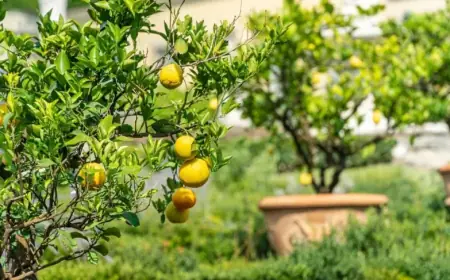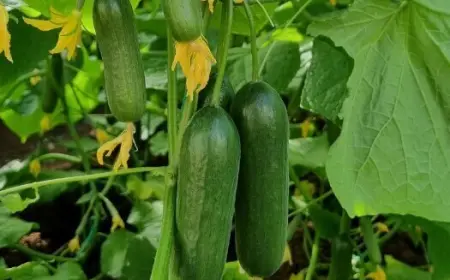Methods of Growing Watermelon and Its Effects on Human Health
Watermelon (Citrullus lanatus) is a sweet and hydrating fruit belonging to the cucurbit family. It is one of the most popular fruits of the summer season. This article discusses the benefits, potential harms, and cultivation methods of watermelon.

Benefits of Watermelon
-
High Water Content
Contains about 90–92% water. Helps prevent dehydration, especially during hot weather. -
Rich in Vitamins and Antioxidants
Provides vitamins A, C, lycopene, and beta-carotene. Lycopene supports heart health and may reduce cancer risks. -
Supports Kidney Function
Has diuretic properties that aid in flushing out toxins and cleansing the kidneys. -
Aids Digestion
Its fibrous content promotes healthy digestion and supports bowel function. -
Heart Health
Contains L-citrulline, an amino acid that helps lower blood pressure and improve circulation.
Possible Harms of Watermelon
-
Overconsumption
Eating too much can cause bloating, diarrhea, or stomach upset. -
Concerns for Diabetics
Due to high natural sugar, diabetic individuals should consume it in moderation. -
During Pregnancy
Pregnant women should be cautious of nitrates in early-harvested or chemically treated watermelons. -
Nitrate Content
Improperly grown watermelons may contain harmful levels of nitrates.
Cultivation Methods of Watermelon
1. Climate and Soil
Requires a warm climate, full sun, and fertile, well-drained soil.
2. Seed Selection
Choose high-quality, disease-resistant seeds adapted to the local environment.
3. Planting
Plant after the last frost. Sow seeds 2–3 cm deep and 1.5–2 m apart.
4. Watering
Regular watering is important early on. Reduce watering during fruit ripening.
5. Fertilizing
Use organic compost or manure. Ensure balanced nutrients, especially phosphorus and potassium.
6. Pest and Disease Control
Use natural or chemical treatments if needed, and monitor plants for signs of disease.
Watermelon is a nutritious and refreshing fruit. With proper cultivation and moderate consumption, it offers great health benefits and natural hydration.



























